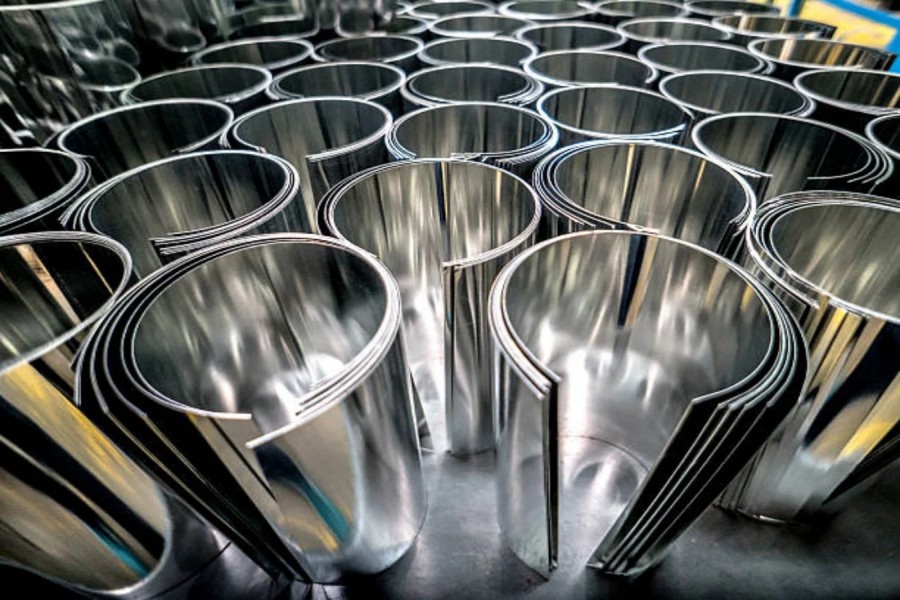Table of Contents

Titanium Plate for Chemical Processing: Key Considerations and Applications
Chemical processing industries require materials that can withstand harsh and corrosive environments while maintaining structural integrity. Titanium plate has emerged as a popular choice for these applications due to its exceptional properties. In this article, we will explore the key considerations and applications of titanium plate in chemical processing.
1. Corrosion Resistance
One of the primary reasons why titanium plate is widely used in chemical processing is its outstanding corrosion resistance. Titanium has a natural oxide film on its surface, which acts as a protective barrier against corrosive substances. This oxide layer forms quickly when exposed to air or moisture and is highly stable, even in aggressive chemical environments. As a result, titanium plate offers excellent resistance to acids, alkalis, chlorides, and many other corrosive substances commonly found in chemical processing.
2. High Strength-to-Weight Ratio
Despite being lightweight, titanium plate exhibits remarkable strength. Its high strength-to-weight ratio makes it an ideal choice for applications where weight reduction is crucial without compromising structural integrity. This property allows for the design of more efficient and cost-effective chemical processing equipment.
3. Thermal Stability
Titanium plate offers exceptional thermal stability, making it suitable for chemical processing applications involving high temperatures. It has a melting point of 1668°C (3034°F) and can withstand prolonged exposure to elevated temperatures without significant deformation or degradation. This makes it an excellent choice for heat exchangers, reactors, and other equipment used in high-temperature chemical processes.
4. Biocompatibility
Another advantage of titanium plate in chemical processing is its biocompatibility. Titanium is widely used in the medical field due to its ability to integrate with living tissues without causing adverse reactions. This property also makes it suitable for applications where contact with biological substances is required, such as pharmaceutical manufacturing or biotechnology processes.
5. Ease of Fabrication
Titanium plate is relatively easy to fabricate, allowing for the production of complex shapes and structures. It can be easily formed, machined, and welded, providing versatility in design and manufacturing processes. This ease of fabrication makes titanium plate a popular choice for custom-made chemical processing equipment.
6. Cost Considerations
While titanium plate offers exceptional properties for chemical processing, it is important to consider the cost implications. Titanium is a relatively expensive material compared to other metals commonly used in chemical processing, such as stainless steel. However, the long-term benefits and performance of titanium, including its corrosion resistance and durability, often outweigh the initial cost.
7. Applications in Chemical Reactors
Titanium plate finds extensive use in chemical reactors due to its excellent corrosion resistance and thermal stability. It is particularly suitable for processes involving strong acids, such as sulfuric acid or hydrochloric acid. Titanium reactors are also used in the production of chemicals like chlorine, sodium hydroxide, and phosphoric acid. The ability of titanium plate to withstand aggressive chemical environments and high temperatures makes it a reliable choice for these critical applications.
8. Heat Exchangers and Condensers
Heat exchangers and condensers play a vital role in chemical processing, and titanium plate is often the preferred material for constructing these components. Titanium's corrosion resistance and thermal stability make it well-suited for transferring heat between different process streams or condensing vapors. Whether in the petrochemical, pharmaceutical, or fertilizer industry, titanium plate heat exchangers offer efficient heat transfer and long-term performance.
9. Storage Tanks and Piping Systems
Titanium plate is also used in the construction of storage tanks and piping systems for chemical processing plants. These components need to withstand the corrosive nature of the stored chemicals and maintain structural integrity over extended periods. Titanium's corrosion resistance, combined with its strength and durability, ensures the reliability and safety of these critical infrastructure elements.
10. Electroplating and Electrolysis
Titanium plate finds applications in electroplating and electrolysis processes, where it serves as an electrode or a substrate for electrodeposition. Its corrosion resistance, electrical conductivity, and durability make it an excellent choice for these electrochemical processes. Titanium plate's use in these applications ensures efficient and reliable metal plating, surface finishing, and electrochemical manufacturing.
